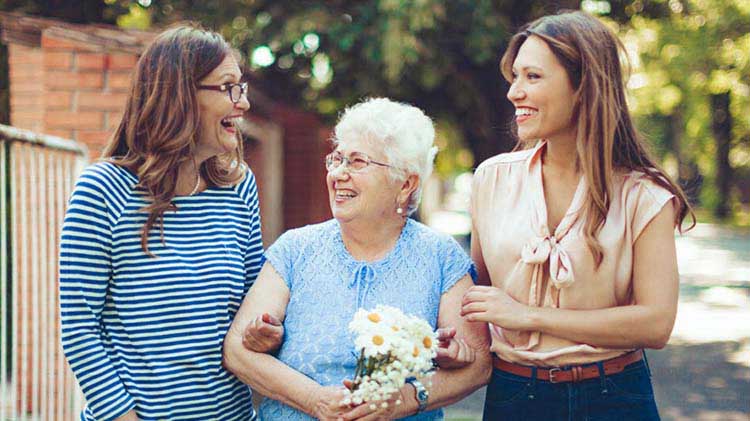Types of senior living options
Understanding the common senior housing options will help you and your loved one choose what type of care is right for them.
Is someone you love nearing retirement age? You're not alone: By 2060, the number of Americans age 65 and older will grow to 94.7 million. This demographic evolution will also force a change in housing: the number of Americans needing nursing-home care is expected to increase to 24 million by 2030.
Transitioning from an independent home or apartment can mean choosing any number of senior housing options, ranging from aging in place to moving to a facility that provides assistance like a nursing home. Each setup provides a different kind of staff and facilities based on personal preferences and mental and physical needs.
What types of senior living options are available?
Depending on what challenges your loved one might or might not have, different options may work better for them. While there are more choices available in some areas than others, here are some typical options:
- Aging in place involves making accommodations to allow an older person to keep living in their home. These may involve physical adjustments to the home such as grab bars or ramps, at-home visits from medical personnel or supportive home visits from family or agencies.
- 55+ retirement communities are housing options that are restricted by age and for those who have little to no need for assistance.
- Continuing-care retirement communities (CCRC) provide independent living while offering various types of housing such as studios, condos, duplexes and cottages. CCRC’s provide amenities and medical care through different phases of the aging process, which allows the resident to remain in the same place.
- Respite care is temporary assisted living or nursing home care for individuals who are recovering from a serious illness or surgery, but do not require staying in the hospital.
- Assisted living facilities provide help with daily activities like cooking, laundry and housekeeping, but may or may not have any medical help available.
- Nursing homes are an option for those who need a higher level of medical assistance, providing management of medication and round-the-clock supervision.
- Memory-care facilities may be independent, but are usually a separate part of a nursing home or assisted-living facility that is only for those with dementia and provide surroundings and services specifically suited to them.
Choosing what's right for your loved one is a complex decision with practical, emotional and financial considerations. These questions can be a good starting point:
- Does your loved one have any physical or mental limitations? Take Alzheimer's, for example: By 2050, the number of people age 65 and older with Alzheimer’s dementia is projected to reach 12.7 million. In general, a memory care facility can provide more specialized care and therapy, often around the clock, for issues specific to an aging population; this type of care may or may not be offered at other types of facilities.
- Does your loved one require regular medication? Regulations affecting nursing home and assisted living facilities vary from state to state, but generally the former is able to administer medications, while the latter may only be able to give reminders to take medications. Assisted living facilities also may not be able to help track blood sugar or review other chronic conditions that require constant monitoring.
- Is your loved one able to manage daily care needs? If daily tasks such as bathing or showering, preparing and eating meals and using the bathroom present an obstacle, a senior housing facility with more constant care may be a good fit. If your elderly family member isn't ready to leave his or her home and enjoys independent living but you would like to be better connected, you can look into aging-in-place options or talk to your State Farm® agent about safety and monitoring systems available.
- Is privacy important to your loved one? For those who are able to maintain a certain level of independence, having a space of one's own can be vital. In some facilities like nursing homes, shared rooms and living quarters are more common — while assisted-living or continuing-care retirement facilities may offer private apartments.
Early planning is key to ensuring a transition that provides the best care for your elderly loved ones. Part of that discussion may include financial assistance such as long-term care insurance.
Talk to your State Farm agent today about options that fit your budget and your needs.




